Joe Biden’s solutions are stuck in the 20th century
Big government, generous welfare and high taxes are a throwback to a statist’s utopia when governments could fix problems with endless sums of money.
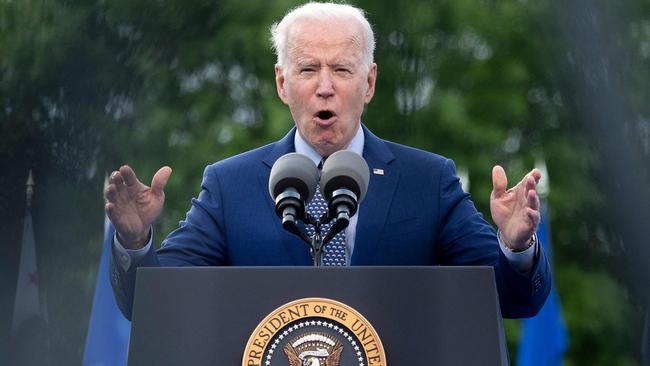
Addressing the American people in a prime time television speech, Joe Biden promised a radical change in direction that would transform the economy and rewrite the social compact that had defined the US capitalist model. “We can rebuild to a stronger economy. We can create better and more secure jobs. And we can really put this country back to work,” he said,
The year was 1983. Senator Biden was delivering the Democratic response to President Reagan’s state of the union address. Reagan was in his pomp. It was the early stages of “Morning in America” and the global revolution in economic thought and practice that would come to be synonymous with the president and his contemporary and soulmate in Britain, Margaret Thatcher.
Biden back then was preaching, forlornly, it turned out, the case for a return to the economic dispensation the left had promoted for half a century: expansive government programs; generous social welfare arrangements; higher taxes; an assertive role for labour in the workplace. It was no match for the neoliberal order that was in the ascendant that decade.
But like hemlines and hairstyles, economic ideas never completely go out of fashion. If you wait long enough the styles and trends we laughed at so recently will eventually be all the rage again.
Tony Blair has a late-blooming mullet. America has a government in the full throes of a return to mid-20th-century economic ideas.
Biden has surprised many, not least in his own party, by the sharp left tack he has taken since entering the Oval Office. He had campaigned as a centrist and, given his age, was widely expected to be a caretaker president. His main promise had been to offer the nation a quiet respite from the high-intensity insanity of the Trump years. But his first hundred days have been plausibly described as the most left-wing of any Democrat in decades.
In Georgia with @DrBiden to celebrate the successes of the first 100 days of the Biden-Harris administration. Jobs are coming back, folks are getting vaccinated, and better days are ahead. Tune in. https://t.co/v1B30kekja
— Joe Biden (@JoeBiden) April 29, 2021
There are multiple explanations offered for this outcome: the aged Biden is not really in charge; he’s fulfilling a bargain made with the dominant left of his party. But there’s a simpler interpretation of his apparent conversion to a social democratic transformation of the economy: it’s been his ambition for 50 years.
The odd sensation of reliving history was acute on Wednesday, when in addressing a pandemic-slimmed session of Congress, Biden became only the fourth American to have given both such an address and the official response to it. In words almost identical to those bromides he had used nearly 40 years earlier, Biden promised a massive government jobs program. “The American jobs plan is going to create millions of good paying jobs, jobs Americans can raise a family on.”
His additional spending commitments so far come to around $7.7 trillion. That’s more than the annual budget of the US federal government.
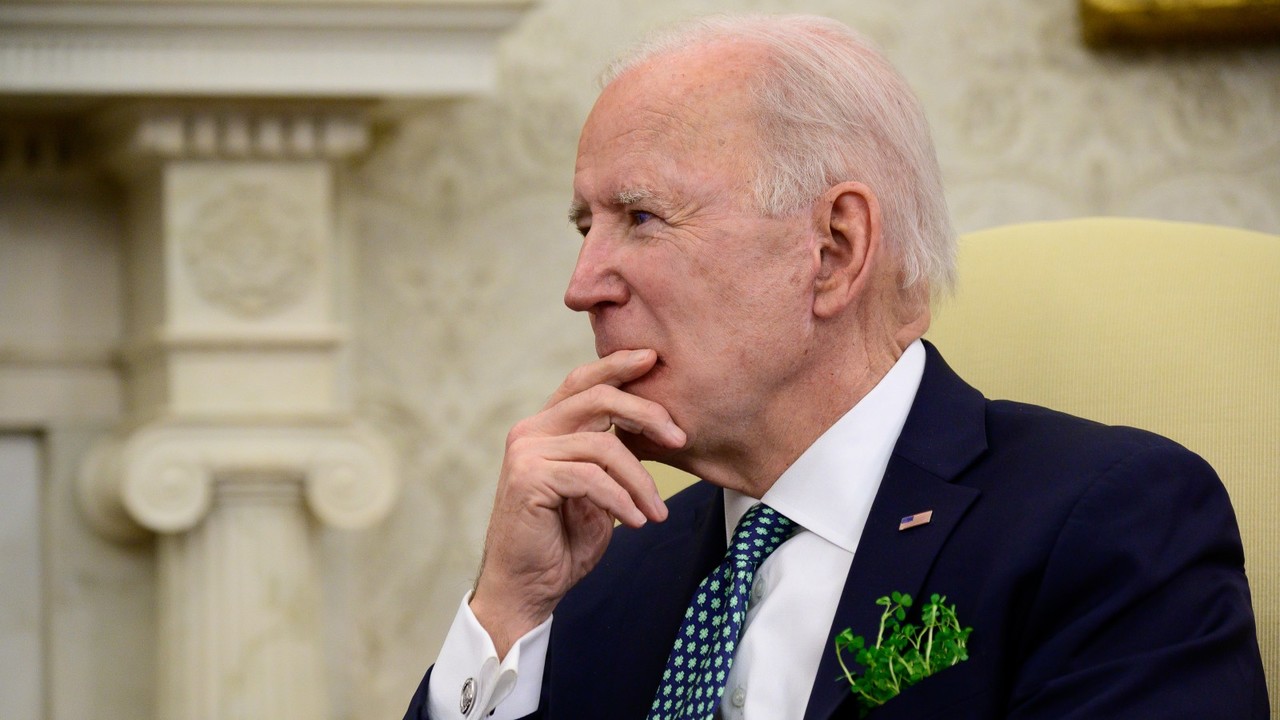
The Biden program reads like some of the greatest hits of the middle years of the 20th century, a throwback to a statist’s utopia when governments could fix problems with endless sums of money, financed by a mix of higher taxes and debt: Franklin Delano Roosevelt’s comprehensive interventionism; Dwight D Eisenhower’s grand public works; Lyndon B Johnson’s Great Society welfarism; the elevation of trade unions to a dominant role in the economic life of the nation.
That most 21st-century of challenges, climate change, is seen as a problem to be fixed by massive dollops of old-fashioned public spending and union labour. In his speech the president waxed lyrical about an America that would see “500,000 electric vehicle charging stations along the nation’s highways”, all to be built, he stressed, by members of the International Brotherhood of Electrical Workers, a trade union founded in 1891.
While the neoliberal era of Reagan and Thatcher may indeed be over, the more pressing question for the US and the rest of the developed capitalist world should be: is this reactionary radicalism the way to rebuild economies in the fierce crucible of 21st-century global competition?
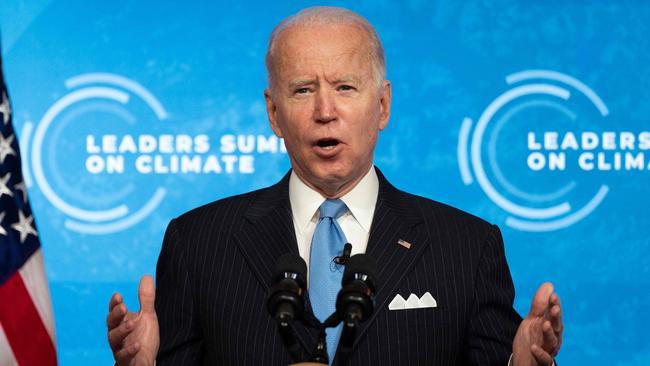
Few would doubt that inequality in America is grotesque or that infrastructure is in an advanced state of collapse. But the formula proposed now didn’t work well 50 years ago. High taxes, often wasteful spending and big deficits sowed the seeds of stagflation. President Biden seems to have learnt nothing and forgotten nothing; his tax and spending plans are the highest in half a century.
Perhaps worse than the dubious record of statism the left is embracing is the missed opportunity to develop a modern progressivism that learns from those failures and yet still provides a needed economic rebalancing.
The development of the COVID-19 vaccine in the US and Britain could offer a model for this: a role for the public sector in assuming risks the market won’t touch, allied to the ingenuity and profit-motive of the private sector to supply a vitally needed investment.
There’s a creative rethink going on across the spectrum in economic thought, as the challenges of China and the failures of globalisation demand urgent new ideas. Even on the right in America, years of bovine fealty to an anti-government creed has given way to the possibilities of an intelligently directed enhanced role for the state: such as reining in the excesses of the market or new private-sector leviathans.
But instead of embracing a genuine 21st-century radicalism, the leading political authority in the West is committing itself to recreating an inglorious past.
The Times


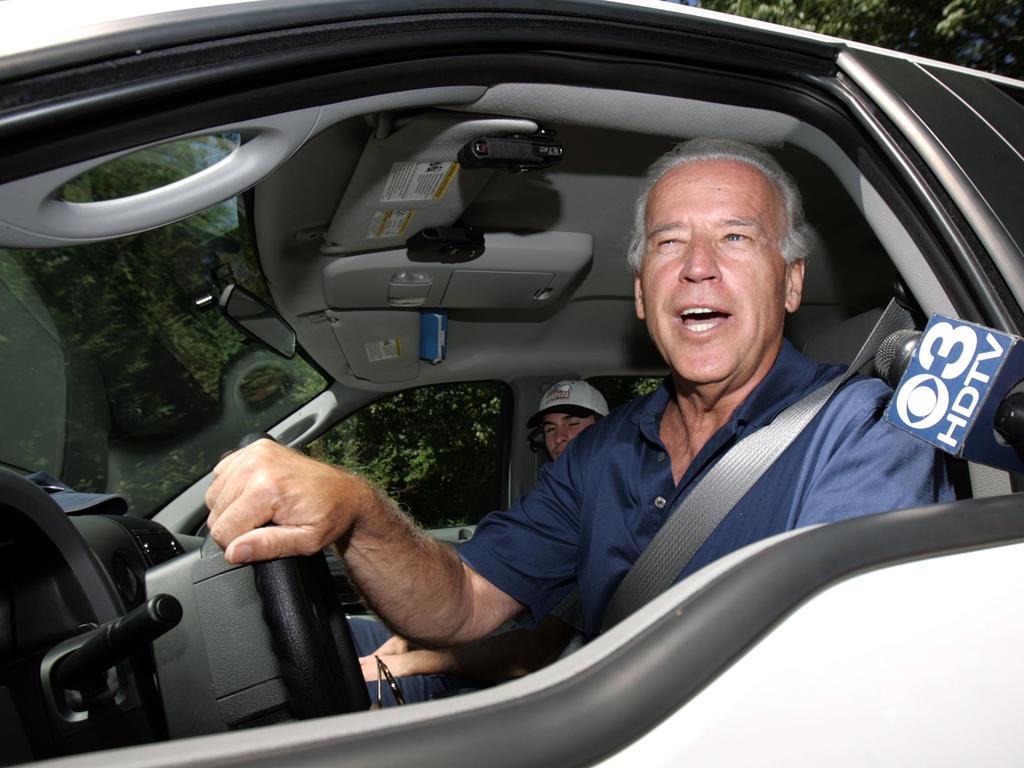
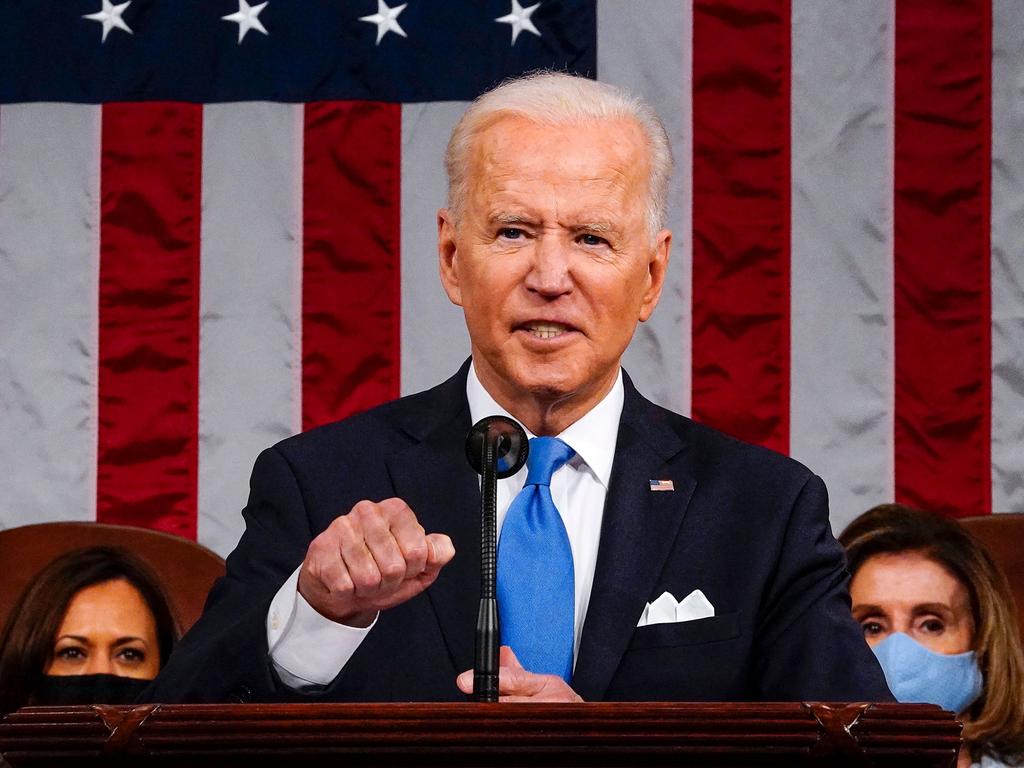




To join the conversation, please log in. Don't have an account? Register
Join the conversation, you are commenting as Logout